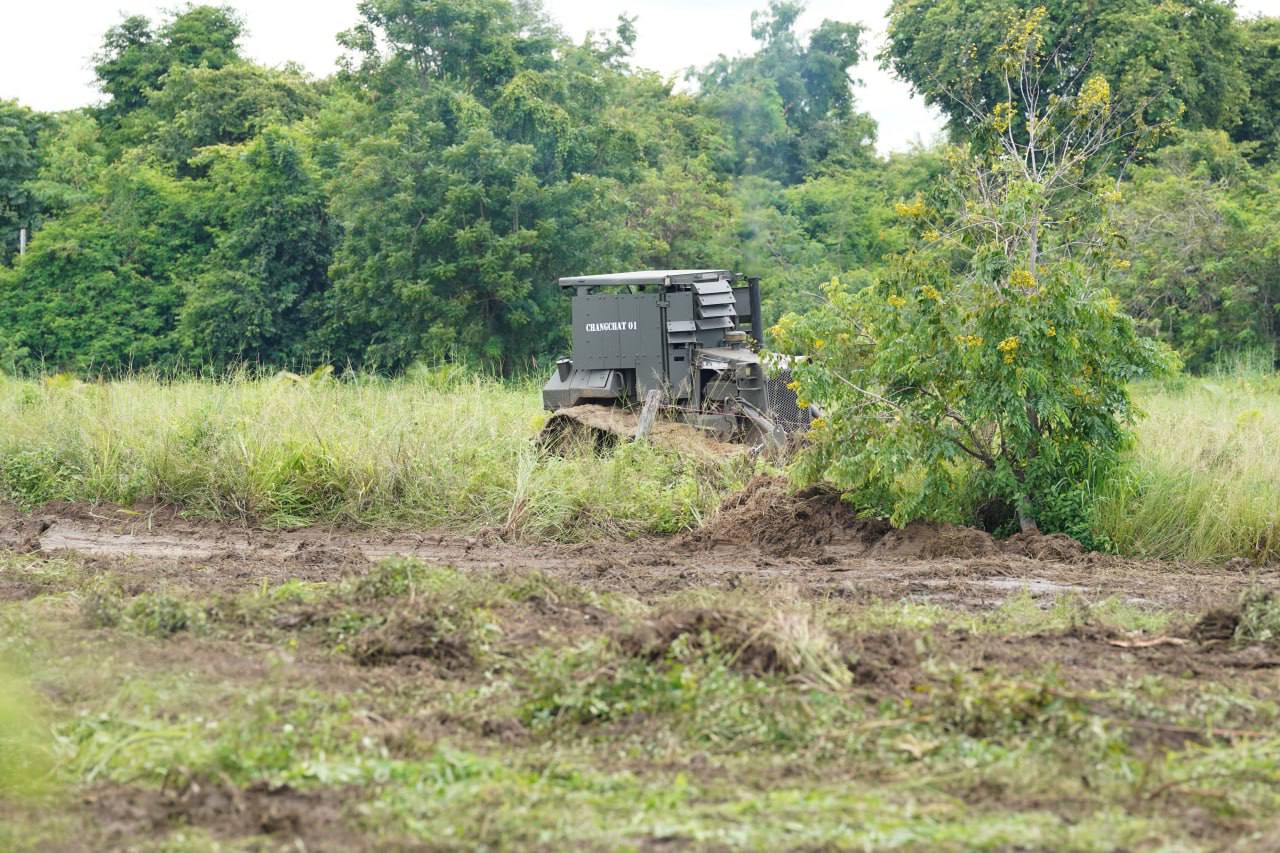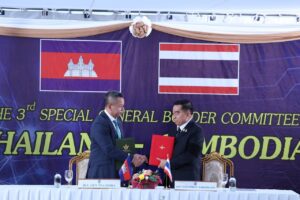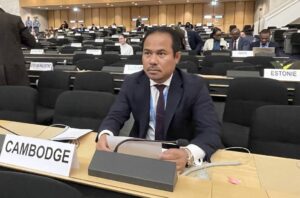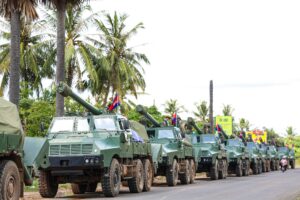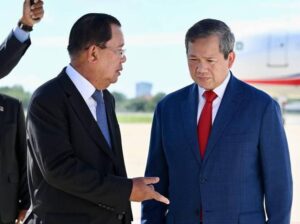Opt-Ed÷ Bulldozers Before Dialogue: What’s Happening Right Now at the Cambodia-Thailand Border
I’m writing this because something is unfolding today along the border in Sa Kaeo Province that most people aren’t hearing about.
This morning, October 10, at dawn, Thai military forces rolled bulldozers into Ban Nong Chan and Ban Nong Ya Kaew. They’re calling it a “mine clearance operation.” But if you look at what’s actually happening, it’s something else entirely.
Here’s what’s happening
According to Cambodian government statements and regional media reports, the Burapha Task Force of the Royal Thai Army started clearing ground and removing mines in areas where 135 Cambodian families live. These families were given a deadline by Thailand leave your homes by today, October 10. Some did. Some refused to abandon land they’ve worked for decades.
The bulldozers are crossing into disputed territory right now. Thailand says they “notified” Cambodia through the General Border Committee. But notification isn’t the same as consultation. You don’t get to just tell your neighbor you’re doing something on contested land and call that cooperation.
Cambodia’s response
Phnom Penh has formally protested. Deputy Prime Minister Tea Seiha wrote to Bangkok on October 9 pointing out that “Cambodia was informed, not consulted”—which violates the GBC’s own protocols about mutual agreement on sensitive operations.
Prime Minister Hun Manet called for urgent talks. Thailand is going ahead anyway.
Thailand will argue they followed procedures
And they did, technically. They notified the GBC. They cited forestry and immigration law. They framed it as routine enforcement.
But following the letter of a protocol while violating its spirit, notifying instead of consulting, setting deadlines instead of negotiating, moving bulldozers instead of picking up the phone isn’t cooperation. It’s unilateral action with a paper trail.
Why this matters beyond one village
This isn’t really about clearing mines. It’s about power and how it gets used.
This follows a pattern. In 2011, armed clashes erupted at Preah Vihear Temple over disputed territory. In subsequent years, there have been repeated incidents of Thailand making unilateral decisions about border areas and presenting them as fait accompli. Each time, Thailand talks about friendship while acting as both judge and enforcer.
One country decides. The other is expected to accept it.
When you use bulldozers before picking up the phone for real dialogue, that’s not peacekeeping. That’s domination with paperwork.
And ASEAN’s silence makes it worse, because it signals that this behavior is acceptable as long as no shots are fired.
What’s at stake
The 135 families who woke up to military equipment at their doorstep this morning are more than numbers in a diplomatic dispute. They’re people whose lives are being decided by governments treating their homes as bargaining chips—or worse, not even worthy of bargaining over.
The question isn’t just about who owns which patch of land. It’s about whether regional agreements mean anything when one neighbor is stronger than the other. It’s about whether “consultation” and “notification” are the same thing. It’s about what kind of precedent gets set when unilateral action faces no consequences.
This is happening right now, while most of the world isn’t paying attention.
And that might be exactly what allows it to continue.
Source: Arnaud Darc/Facebook

